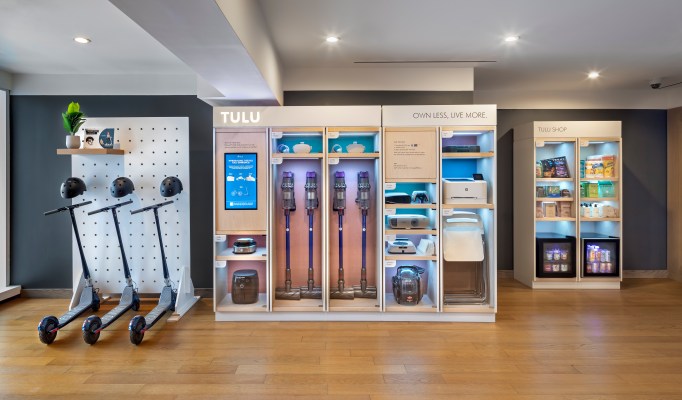If sharing is caring, Tulu has a giant rack of care for you. The company takes the sharing economy to its next logical stop along its journey toward “who even owns stuff anymore?”, giving 50,000 people across a handful of countries access to items that make apartment and dorm living just that little bit more convenient. After all, how many people in a building need to own a drill, a printer and a vacuum cleaner, anyway?
“So I think that the best way to capture what Tulu is is that we’re part of a fundamental shift in consumption paradigms that are moving from this equation of ‘I want something, so, I buy it,’ into the equation of ‘I need something, therefore, I use it.’ The most generic example would be transportation. People used to own cars because ownership itself had a value,” explains Yishai Lehavi, chief executive officer and co-founder of Tulu. “Today, millennials and Gen Zs don’t think about cars. They want to get from point A to point B and as long as they can get it in an affordable, convenient way, the ownership just becomes a constraint. We’re accelerating this already existing mindset and saying that everything in our daily life can become such a service.”
The company just closed a $20 million Series A round, 10 months after its seed round. The round was led by VC New Era Capital Partners and includes strategic investors such as Robert Bosch Venture Capital, Kärcher New Venture and Round Hill Ventures, as well as additional investors including Tal Ventures, AGP Ventures and Infinity Venture Company, along with follow-on investments from existing investors such as Ground Up Ventures, i3 Equity Partners and Good Company.
The new funding will allow Tulu to pursue new partnerships with landlords and brands, to reach 1,000 buildings in existing and additional markets. The company claims it has served more than 50,000 people across 15 cities in the United States, the United Kingdom, Ireland, the Netherlands and Israel since its launch in 2019.
The company provides on-demand rentals of home products and household items, and also offers micro-bodega style self-serve shops. The company’s product uses a bit of wall space in the lobby, lounge or laundry room in its buildings, and offers 24/7 access to products, including vacuum cleaners, e-scooters, bikes, VR headsets, etc. The product selection is customized to the needs and wants of the building occupants, who can rent or buy products through the Tulu app.
“We really believe that in order for Tulu to succeed, it has to be huge, and it has to become a standard,” explains Yael Shemer, chief customer officer and co-founder of Tulu. “And we are starting to see that happen. When someone who lives in a dorm that has Tulu, they are in the usage economy mindset. When they move to an apartment building that doesn’t have a Tulu, they are emailing their management requesting it. It is such an obvious thing, and we’re really excited about making this a standard and then just organically grow really fast.”
The company is building a platform for rental, which didn’t strike me as a particularly defendable market, especially if the company becomes successful. There’s more to the company than meets the eye, however — it works with the supply-side companies in a way I wasn’t expecting.
“I think that the real exciting thing about Tulu is not just seeing the mindset changing in the demand-side of our members using our services, but also on the supply side. We’re seeing how our brands can take household items and think about what these items look like in the access economy. If you take the supply chain crisis, for example,” suggests Shemer, “you can just go downstairs and grab a PlayStation Five, and not worry about the fact that all these products that were being shipped to your house are never going to be used to their full capacities. So this is a game of manufacturing, designing and shipping products that are meant to be used hundreds of times a week. And this is insights that our partners are really excited about as well.”
“Tulu provides a unique channel for a new way of consumption that is becoming more and more significant within millennial and Gen Z consumers,” said Dr. Ingo Ramesohl, managing director at Robert Bosch Venture Capital. “At Bosch, we are constantly looking for technologies that can extend our outreach and allow us to better learn today’s and future consumers’ needs and preferences. Our investment in Tulu is driven by the understanding that this shift from an ownership mindset is substantial and that brands will need to find ways to adapt to the usage mindset and make it part of their long-term business model.”
